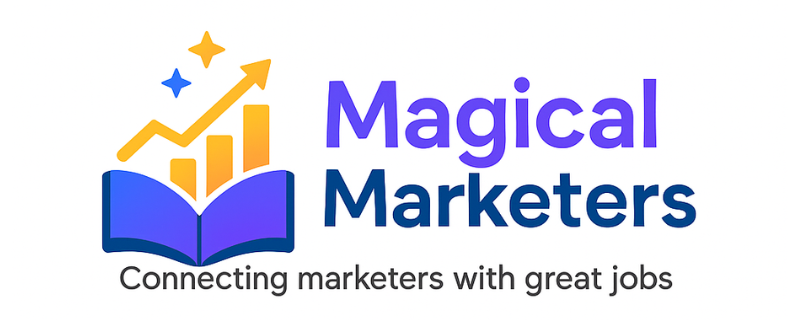Is the SEO Job Market Broken? Why Even Experts Aren’t Getting Hired in 2025

Search Engine Optimisation (SEO) has long been one of the most in-demand digital skills. But in recent times, the SEO job market is showing signs of a major shift—some might even say it’s broken. Many seasoned SEO professionals, with years of experience and impressive achievements, are finding it surprisingly difficult to land jobs.
Why is this happening? Are companies no longer valuing SEO? Is AI to blame? Or is the market simply overcrowded?
Let’s break down what’s really going on in the SEO job space in 2025.
A Quick Look Back: How SEO Jobs Have Evolved
About 20–25 years ago, SEO was a niche skill. Freelancers and small agencies could make good money by offering their services to brands that had no in-house SEO capabilities. Most marketing teams didn’t even treat SEO as a serious part of digital marketing.
Slowly, this changed. Companies began hiring full-time SEOs. They built in-house teams. Freelancers were still hired, but mostly for specialised work like technical audits or link building.
For many years, SEO roles remained stable. But now, in 2024–2025, the balance is changing again.
What’s Happening in the SEO Job Market Right Now?
A report by SEOJobs.com shows clear evidence that SEO hiring is undergoing a significant transformation. Some of the key insights from the 2024 job data are:
SEO Job Openings Have Declined
There were fewer SEO job postings in 2024 compared to previous years. This means more competition and fewer opportunities.
SEO Salaries Are Falling
The median salaries for SEO professionals saw a dip, which is unusual for a digital skill still considered essential.
In-House Roles Dominate
A massive 65% of SEO roles are now in-house. This limits options for freelancers and consultants.
Remote Jobs Are Reducing
SEO used to be a remote-friendly job, but now, remote roles are fewer than they were during and after the pandemic.
Content and SEO Analyst Jobs Dropping
- SEO job titles focused on content strategy and writing have declined by 28%.
- SEO Analyst roles dropped by 12%.
These figures point to a shift in the type of SEO skills employers are looking for.
Technical SEO Is Still in Demand – But There’s a Catch
Interestingly, while job postings for technical SEO roles slightly declined (from 5.8% to 5.4%), the demand for technical SEO skills increased. It grew from 71% to 75% in just one quarter.
So what’s going on?
Companies seem to want technical SEO skills without officially advertising for technical SEO roles. This may be due to cost-cutting or a misunderstanding of what technical SEO really requires. As a result, professionals with expertise in this area may not see jobs that match their skills—despite demand existing.
Is AI the Villain in This Story?
Many experienced SEO professionals believe AI in recruitment is causing serious harm.
Today, most large companies use AI-powered Applicant Tracking Systems (ATS) to screen resumes. While these systems help HR teams manage thousands of applications, they’re far from perfect.
Keith Goode, a seasoned SEO, shared:
“I’ve seen top-class SEOs get rejected instantly for ‘lack of experience’. One hiring manager applied for his own job and got rejected by the AI. He ended up firing his team.”
This shows how overreliance on AI is hurting qualified applicants. If your resume doesn’t have the right “keywords” or formatting, it may never reach a human being—even if you’re the best person for the job.
Ghosting, Rejections, and Frustration: The Harsh Reality
Brian Harnish, an SEO expert with decades of experience, shared his personal story on LinkedIn. He did everything right:
- Applied early
- Optimised his resume multiple times
- Used tools like ResumeWorded to beat ATS
- Accepted lower salary ranges
- Followed up after interviews
- Networked with the right people
- Tailored his LinkedIn and resume
- Even had great interviews
Yet, he kept facing ghosting and rejections. Often, the only response he received was the usual:
“While your qualifications are impressive, we went with another candidate.”
This is a common experience now, especially for mid- to senior-level SEO professionals.
Why Are Even the Best SEOs Struggling?
Let’s look at some possible reasons:
Mismatch Between Titles and Skills
Job titles like “SEO Specialist” or “Content Strategist” are declining. But companies still want the work done—just under different titles or by combining roles (like asking one person to do SEO + content + analytics).
AI Filtering Out Top Talent
Resume scanning tools often miss the nuance of a seasoned professional’s experience. If your resume isn’t optimised for AI, you might get rejected automatically.
Companies Cutting SEO Budgets
With economic uncertainty, many businesses are reducing digital marketing spend. SEO, which shows results in the long term, often gets pushed aside for short-term channels like paid ads.
Shift in Focus Areas
There’s increasing focus on AI content tools, video SEO, and UX, which weren’t traditional SEO skills. This shift may leave older SEOs behind unless they upskill.
Increased Competition
There are more SEOs than ever. The barrier to entry is lower due to online certifications and AI tools that make SEO look easy. But companies still want results from people who’ve done the hard work.
Senior Roles Are Rising – But They’re Rare
Interestingly, the only SEO job titles that saw an increase in 2024 were:
- SEO Manager
- SEO Director
- VP of SEO
But these roles are few in number, and competition is tough. Not everyone can or wants to be in a leadership role, especially if they prefer hands-on work.
Also, hiring for these positions is often slow and cautious—involving multiple interview rounds, tasks, and long wait periods.
What Can SEO Professionals Do Now?
Here are some practical tips if you’re trying to survive in this shifting job market:
Tailor Your Resume for AI
Use tools like Jobscan or ResumeWorded. Mirror the job description in your resume without lying. Keep the format clean and simple.
Learn What’s in Demand
- Technical SEO
- AI-powered content optimisation
- Data analysis
- Core Web Vitals
- Local SEO and international SEO
- SEO for eCommerce and voice search
Upskill accordingly.
Focus on Personal Branding
Build your presence on LinkedIn. Share SEO insights, case studies, or tips. Let recruiters see your expertise in action.
Start Freelancing or Consulting
If full-time roles are slow to come, explore freelance or contract opportunities. These can keep your skills fresh and portfolio strong.
Network Smartly
Talk to hiring managers directly. Many jobs never get posted. Be proactive in your outreach.
Final Thoughts: The Market Isn’t Dead, But It’s Changing Fast
The SEO job market in 2025 isn’t gone—but it is changing dramatically. Roles are shifting. Skills are evolving. Hiring processes are becoming impersonal and automated.
If you’re an SEO professional today, you need to be more than just “qualified”. You have to:
- Understand how AI is reading your profile
- Stay updated on what businesses really need
- Show your value through real results and visibility
- Be open to new formats of work – freelance, consulting, hybrid, or even product roles
It’s not an easy time. But for those who adapt, the opportunities are still there—just under a new name.
Calling all Marketers!
🔴 Are you tired of searching for the perfect job?
Whether you're into content writing, SEO, social media, graphic design, or video editing—full-time, freelance, remote, or onsite—we've got your back!
👉 We post over 30 job opportunities every single day. Yes, every day (all verified).
Join the most reliable and fastest-growing community out there! ❤️
And guess what? It’s FREE 🤑
✅ Join our WhatsApp Group (Click Here) and Telegram Channel (Click Here) today for instant updates.






